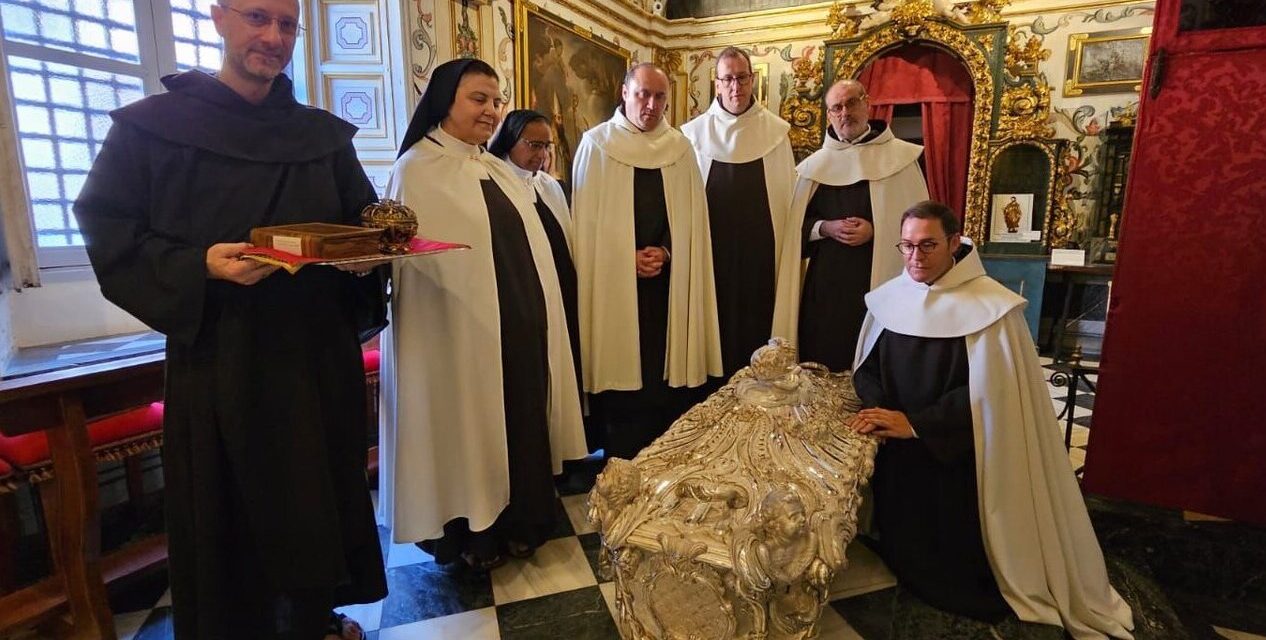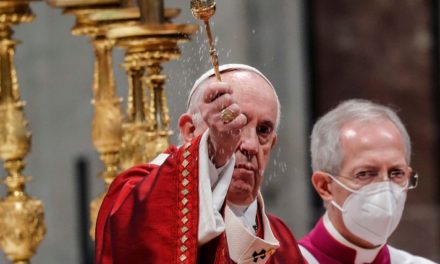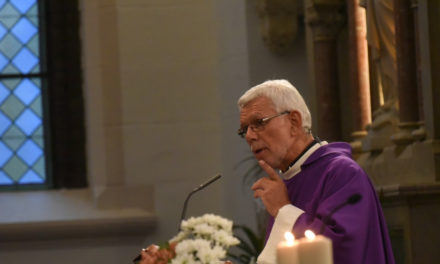The incorruptibility of the body of St. Teresa of Avila has a message for believers and non-believers alike, regardless of whether there is any human explanation for it.
Recently, for the first time in 110 years, the grave of Saint Teresa, who died almost five hundred years ago, was opened. Zoltán Horváth, parish priest of the Avila Szent Teréz church, told hirado.hu
"The incorruptibility of the body of St. Therese of Avila has a message for believers and non-believers alike, regardless of whether there is any human explanation," Zoltán Horváth told hirado.hu.
The parish priest of the Church of Saint Teresa of Avila added that people's trust in the truth has been shaken due to the daily flood of lies, and this also spreads to faith.
Saint Teresa's silver coffin was reopened on August 28, after 110 years. The examination of the body of the saint, who died in 1582, was aimed not only at understanding his physical condition, but also at finding out what his face might have looked like in his lifetime and finding out what could have caused the swelling visible on the heart placed in the glass urn. Only scientific experts and members of the ecclesiastical court were present during the opening of the coffin and the examination of the relics related to St. Teresa, thereby ensuring the authenticity and respect of the process.
"I think that the church never forced anyone, neither its believers nor non-believers, to accept that something supernatural happened. There are things that the church declares to be a miracle, but it is up to us whether we accept it or not if someone's body remains intact after five hundred years of death.
I emphasize that there may be various unknown chemical and physical causes, but in any case, it is not natural for someone's body to remain intact after such a long time"
explained the parish priest.
In addition to Saint Teresa of Avila, Zoltán Horváth also mentioned other saints with incorruptible bodies, such as Saint Clare of Assisi, Saint Rita and Saint Bernadette. According to him, these cases all draw attention to the fact that the essence lies not in externals, but in the spiritual.
The priest expressed the importance of an uncorrupted body as follows:
"Respecting the incorruptible body of Saint Teresa of Avila and other saints is important because it strengthens our faith in the resurrection.
We believe that God returns our bodies in some way after our death, and the case of St. Teresa can be a foreshadowing of the resurrection in some way. Although we cannot imagine how the resurrection will take place, respect for the body is important because the soul we love and respect lived in that body, and therefore it is outstanding that it remained intact.”
"Why can't almighty God do that?"
- asked Zoltán Horváth, who believes that the message of an uncorrupted body can be different for everyone. Doubters can still doubt, but for others it could mean several things. Even the certainty that one must live with love and faith as Saint Teresa did. Someone sees that the incorruptibility of the body symbolizes the modern idealism represented by Saint Teresa, which is still relevant today. According to others, Saint Teresa loved the Lord Jesus so much that God protected her from her body becoming dust.
According to the parish priest, the fact that she was a simple nun, did not do special things, but lived her life with great passion, emotions and desire to do something, can be an important lesson from the life of Saint Teresa.
"With this, he set an example for all of us: the most important thing is to love God and do our everyday tasks honestly.
Alba de Tormes, the place of St. Teresa's burial, also carries a message, as she did not die at home in peaceful circumstances, but while spreading the faith while traveling the country, founding monasteries, he said.
According to Zoltán Horváth, the incorruptible body of Saint Teresa has a message for non-believers as well:
“His way of thinking, his teachings, and the values he stands for—truth, honesty, and morality—are timeless elements that endure while false things fade away.
Just as the memories of important, loving ancestors remain in the memory of a family, so we will also remember Saint Teresa, because she lived a life worth following and passing on her example to the next generations."
Finally, the parish priest emphasized that the Holy Spirit always knows who needs what and guides us in that direction, however, the decision is always ours about what we think, since we have free will.
Those who want to see one of the original relics of St. Theresa of Avila in Hungary can visit the Great St. Theresa of Avila Parish in Budapest, where on October 15th a bone fragment from the saint's knee can be honored in a procession.
Featured image: Opening of St. Therese's silver coffin, August 28, 2024 (Source: Magyar Kurír / karmel.be)













